Laura introduces herself, sharing details about her family, work, and hobbies. Then you’ll hear the same introduction from a 3rd-person perspective.
A Vida da Professora Laura
The Life Of Teacher Laura
Sou o Afonso
I Am Afonso
Afonso talks about himself and his friend Sónia in this simple introduction.
Aprender a Cozinhar
Learning to Cook
I want to learn how to cook!
Passeando o Diogo
Taking Diogo on a Walk
Gabriel and Violeta meet in the park and bond over their love for animals and the outdoors.
Ainda Vamos a Tempo!
We’re Still On Time!
A father who’s always early vs. a daughter who’s always late… It’s about time (pun intended) for an episode like this! Language focus: words and phrases related to time and numbers.
Panquecas e Pedras
Pancakes and Stones
Two children talk about their favourite things to do on weekends. Language focus: Regular -ar verbs in the present tense
À Conversa no Supermercado
Chatting in the Supermarket
D. Maria and Catarina have a pleasant chat in the supermarket. Language focus: formal and informal “you” Cultural note: D. is an abbreviation for Dona, which is an honorific, similar to Ms. or Mrs. You may hear some Portuguese speakers use Dona to respectfully address a middle-aged or older woman who is a homemaker, or […]
Adoro Viajar!
I Love to Travel!
There are 8 reasons why I love to travel.
Making a Reservation
Rui makes a dinner reservation over the phone. Have you done this before in Portuguese?
Aprender uma Nova Língua
Learning a New Language
Learning a new language has its ups and downs.
Maria e Filipe Bebem Vinho
Maria And Filipe Drink Wine
Maria and Felipe have a simplified conversation about some of their likes and dislikes.
Um Queque e Um Sumo
A Muffin And A Juice
A short and simple dialogue about ordering at a Portuguese café.
Traveling in Portugal: Arrivals & Departures
We’re back with another video from our European Portuguese for Beginners series. This time, we’re continuing the discussion about travel and transportation vocabulary. We’ll focus on common Portuguese words you may hear during arrivals and departures, whether you’re on the metro, comboio, or autocarro. Stay tuned until the end for a short demo lesson, featuring […]
Useful Vocabulary For Travel And Transportation
The new episode from the European Portuguese for Beginners series is here! Today our topic is travel and transportation. We’ll teach you the Portuguese words for different modes of transportation to help you plan your next trip, discuss your travel plans, or make your way around the city. Stay tuned until the end for a […]
Asking For The Bill in Portuguese
In today’s video you’ll learn how to ask for the bill at a Portuguese restaurant and say how you’d like to pay. Be prepared for a question about “contribuinte”! If you want to end your meal like a true Portuguese, you’ll have to order a coffee, too. Just be careful because “café” may not mean […]
How to Talk to a Waiter at a Portuguese Restaurant
You did it! You ordered your meal in Portuguese, but the fun’s not over because you’ll probably need to talk to the waiter or waitress again throughout the meal. Whose dish is this? Do you want another beer? Ready for dessert? We’ll teach you simple phrases to use in these situations and more, plus vocabulary […]
How To Order In Portuguese At A Restaurant
So you already know how to get a table at a Portuguese restaurant? Now it’s time to ask for the menu and place the order in Portuguese. Today you’ll learn how to ask and answer common questions that may come up during the ordering process. We’ll help you order a glass of wine, ask for […]
Tips for Making Restaurant Reservations in Portugal
Excited to try all the delicious food and wine at a Portuguese restaurant? Well, first you have to get a table! In this episode, we’ll teach you how to make restaurant reservations in Portugal, plus many useful phrases and vocabulary. Stay tuned until the end for a short demo lesson, featuring activities from the Practice […]
“With” In Portuguese – How To Use It Correctly
In today’s episode you’ll learn about a very important preposition — “com”, which means “with” in Portuguese. “Com” can be tricky because of how it combines with personal pronouns. For example, you can’t say “com mi” ❌. You have to say “comigo” ✅ – “with me”. Some pronouns take on a new form like this […]
The 3 Most Important Portuguese Conjunctions
Conjunctions are words that link other words, phrases, or sentences together. You’ll need them to start connecting your thoughts and forming more complex sentences in Portuguese. There are many different Portuguese conjunctions, but we’ll start you off with the 3 most common. Can you guess what they are? Stay tuned until the end for a […]
How to Say No in Portuguese
Let’s learn how to say “no” in Portuguese! To say “no” or to make a statement negative, just remember this one word and add it before the verb. This video is a part of European Portuguese for Beginners series that covers basic Portuguese grammar, vocabulary and common European Portuguese expressions. If you want to learn […]
Indefinite Articles in Portuguese Grammar
In today’s video we’re going to introduce you to indefinite articles in Portuguese. Watch and learn how to say “a” or “some” in Portuguese, when you want to refer to a less specific instance of something. Stay tuned until the end for a short demo lesson, featuring activities from the Practice Portuguese learning platform, plus […]
Definite Articles in Portuguese Grammar
In today’s video we’ll introduce you to definite articles in Portuguese. Did you know there are 4 different ways to say “the”?? 😱 This video is a part of our European Portuguese for Beginners video series that covers basic Portuguese grammar, vocabulary, and common European Portuguese expressions. Stay tuned until the end for a short […]
A Sopa da Diana
Diana's Soup
A group of friends are about to go see a movie. Before they leave, Diana decides to make dinner for everyone, despite not being a very good cook… Take note of how regular -ar verbs (such as chegar, começar, cozinhar, ajudar, cortar, etc.) are conjugated in the present tense (presente do indicativo) throughout the dialogue. […]

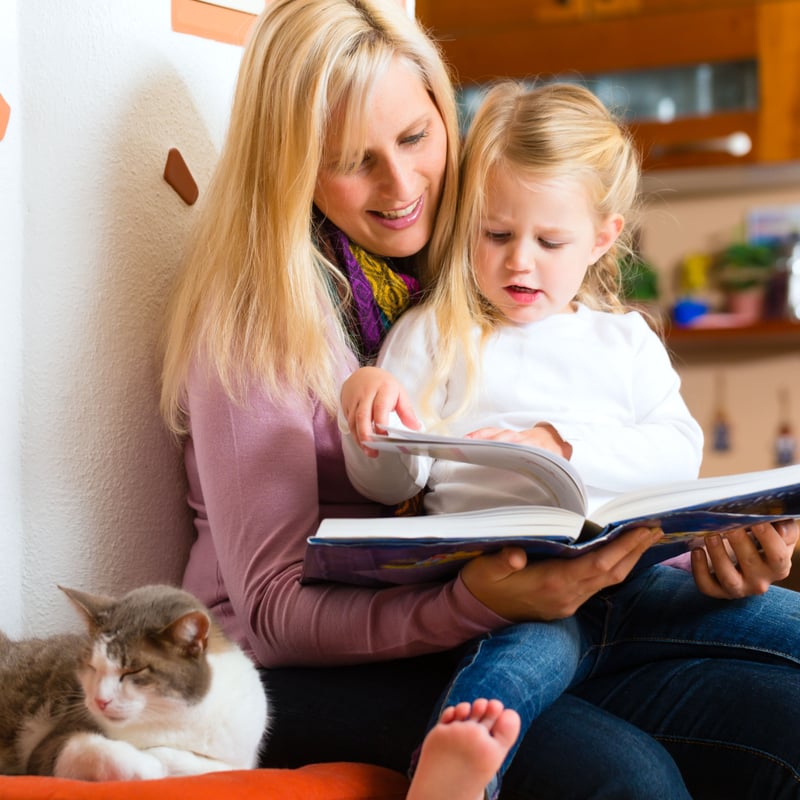
 Damiana
Damiana Eduardo
Eduardo
 Rui
Rui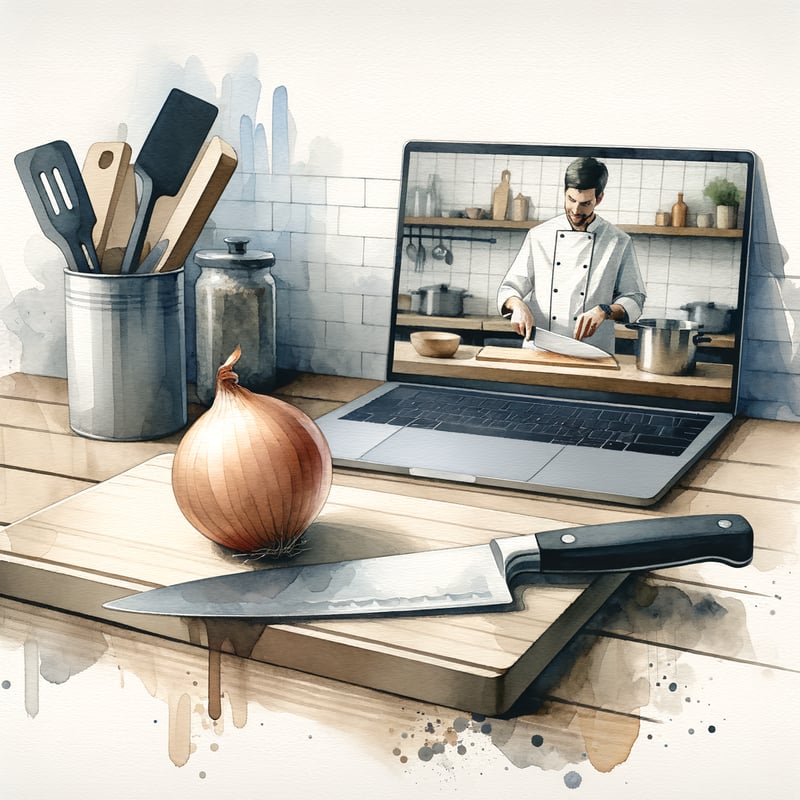
 Joana
Joana
 Eliana
Eliana Luís
Luís



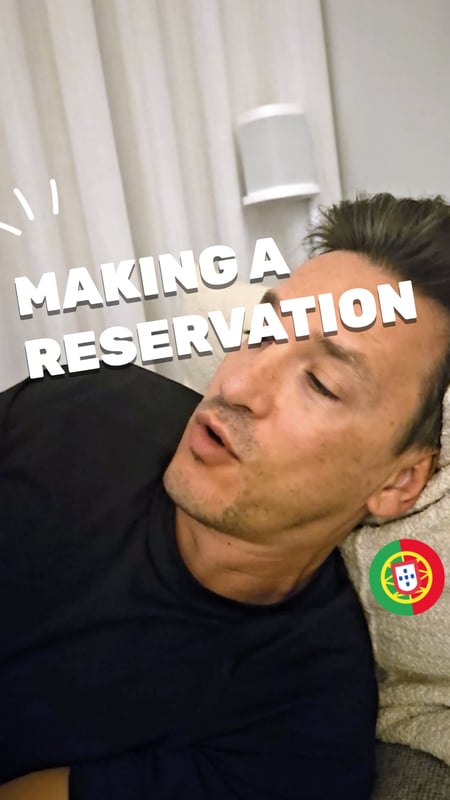
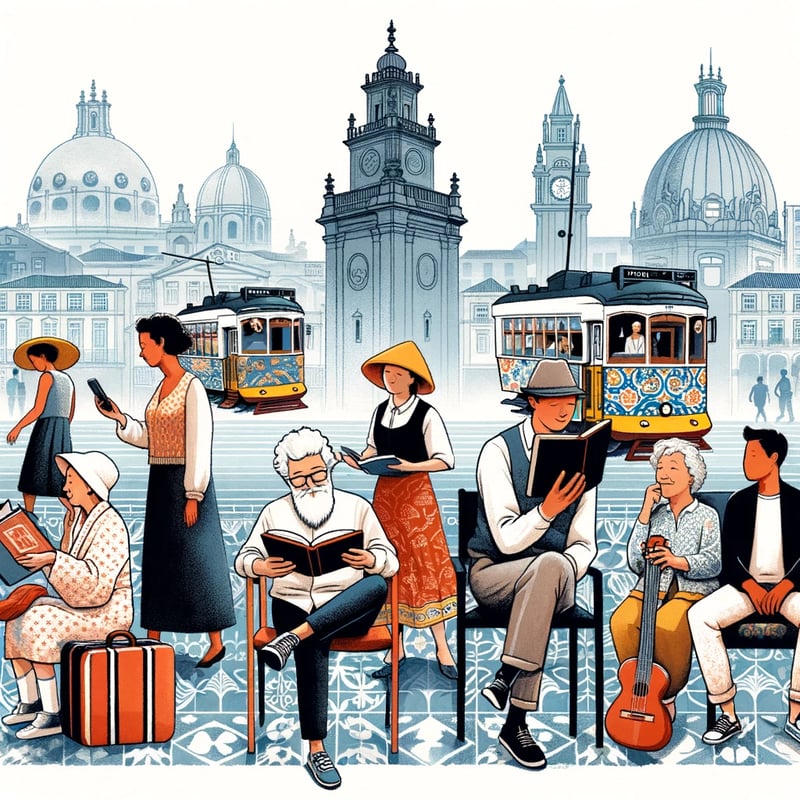
 Pedro
Pedro
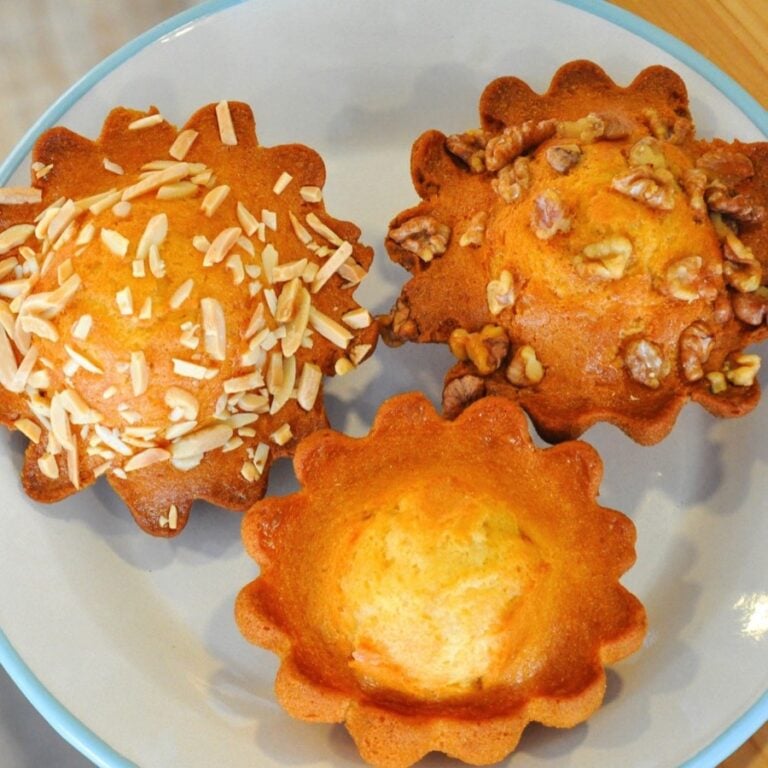
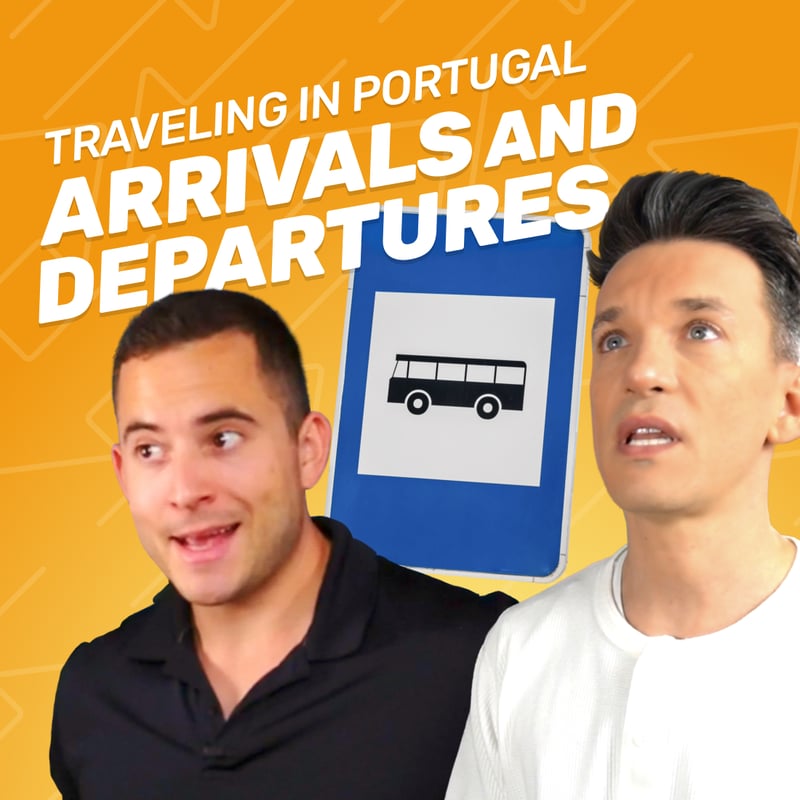
 Joel
Joel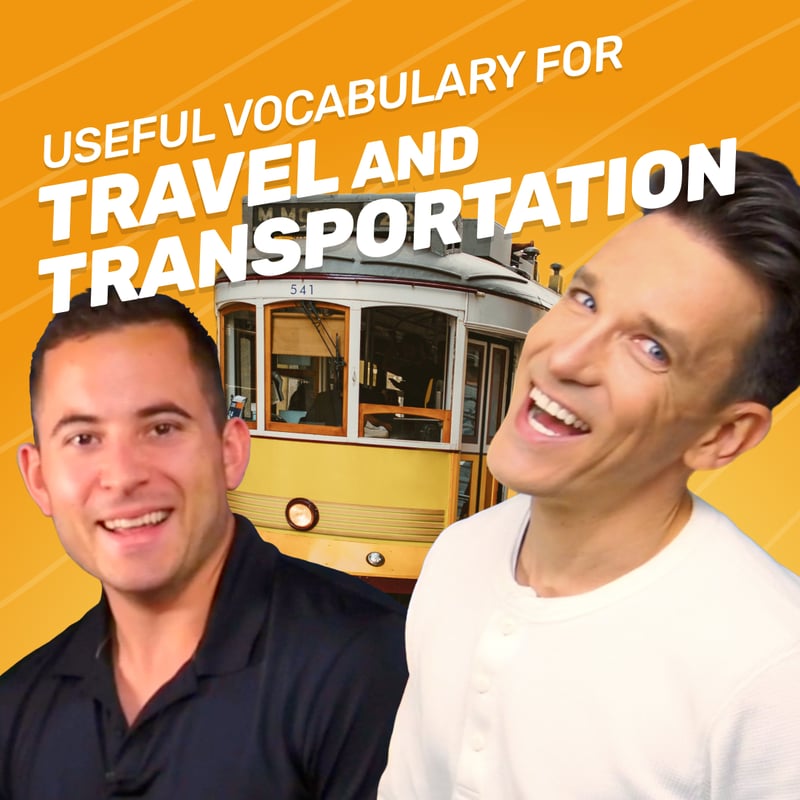

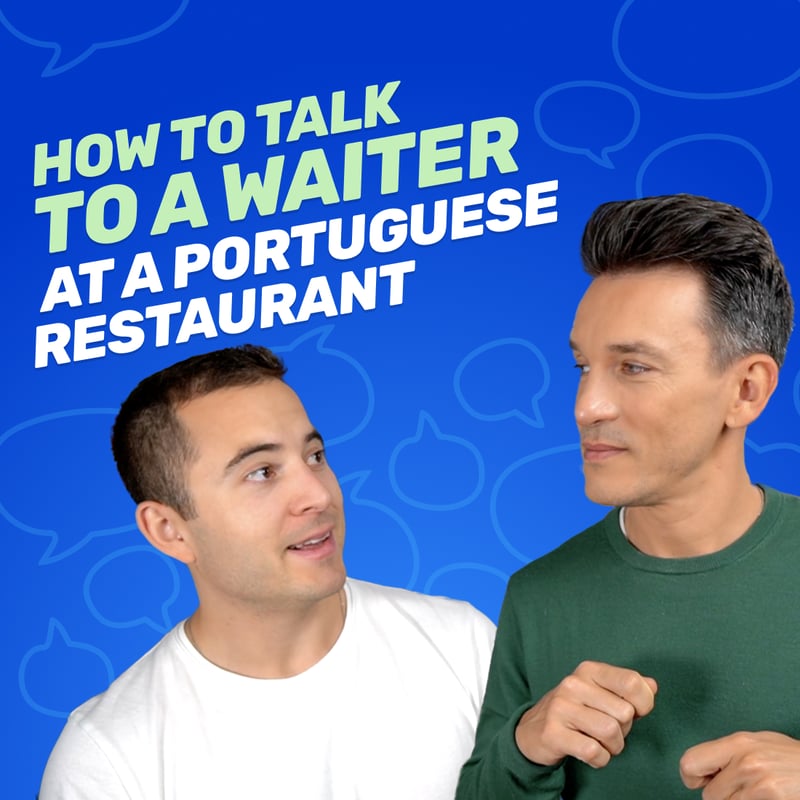
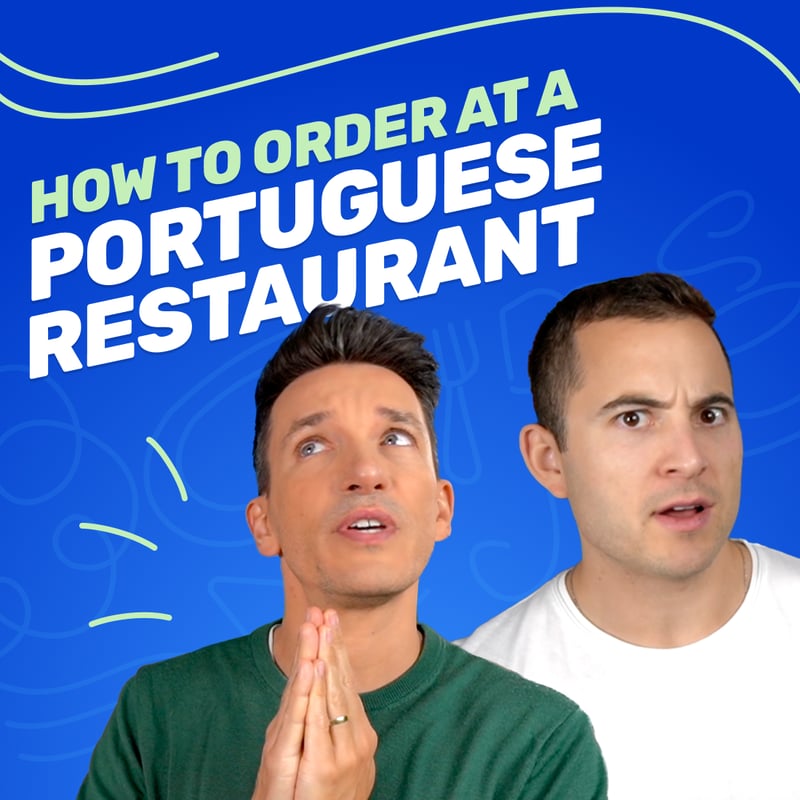
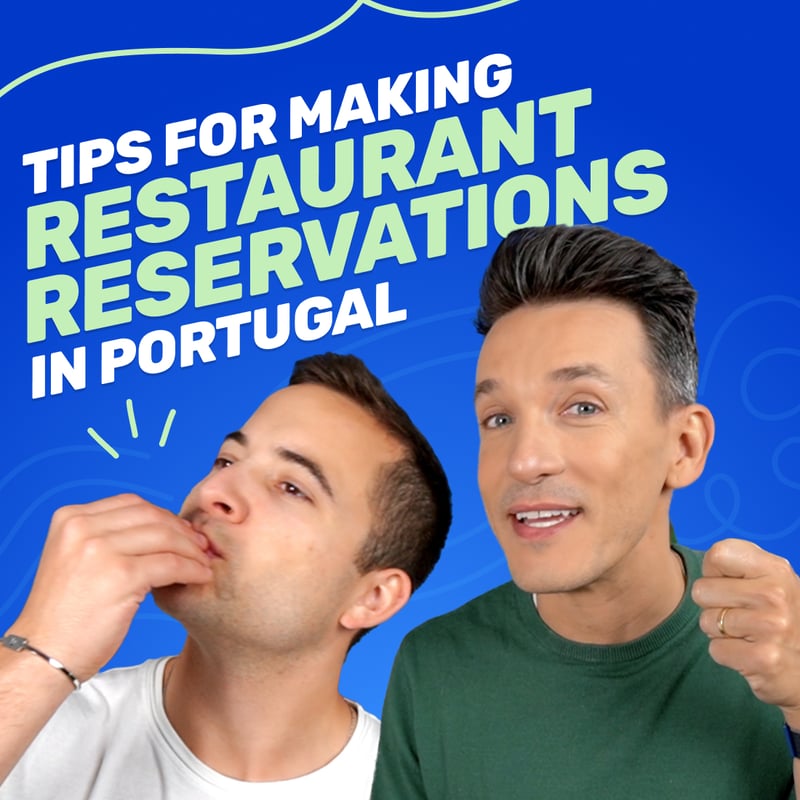
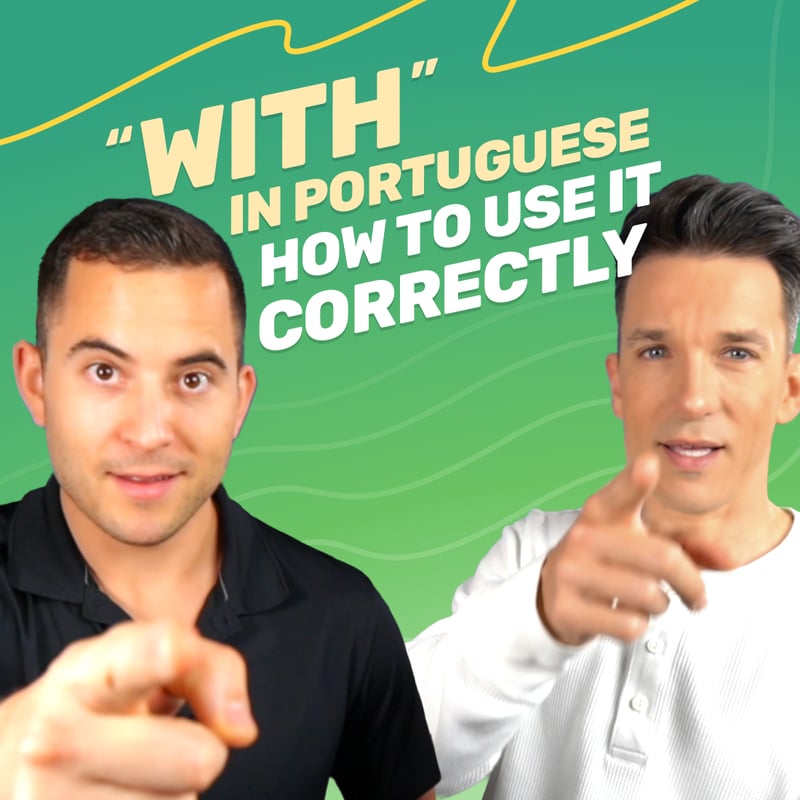
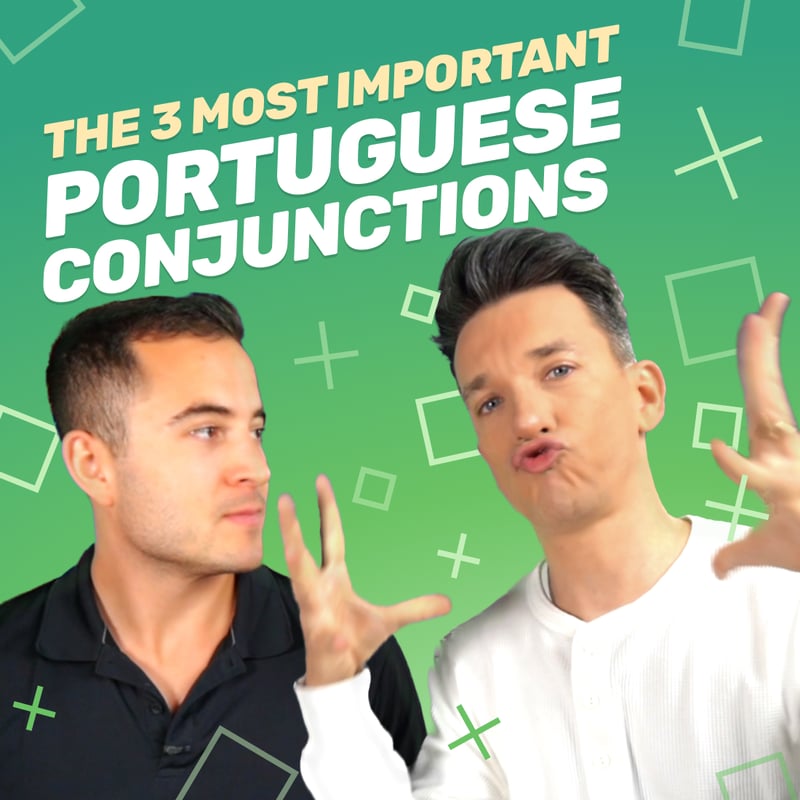
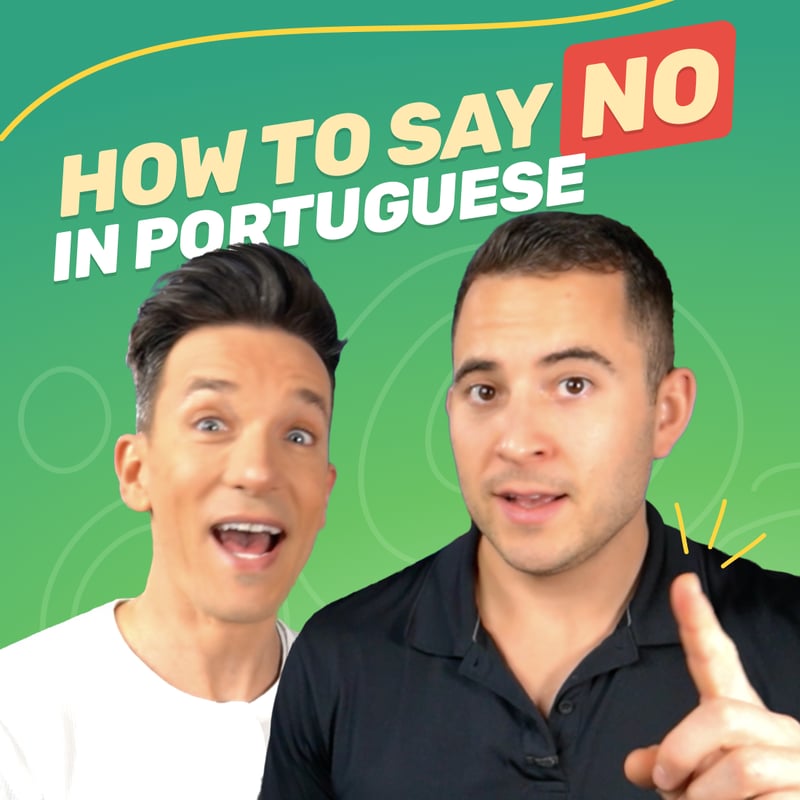
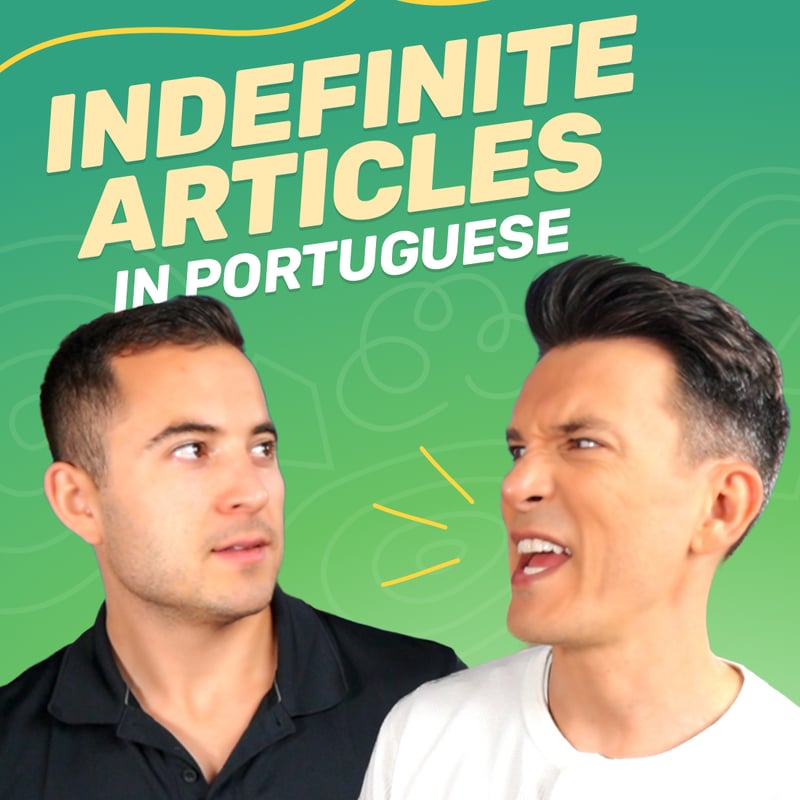
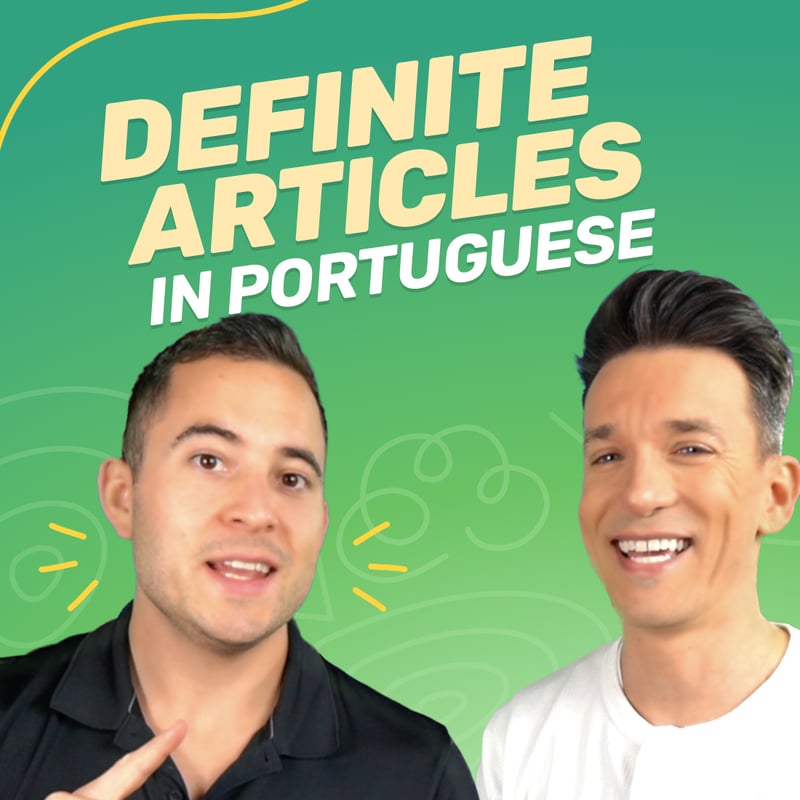

 Mónica
Mónica